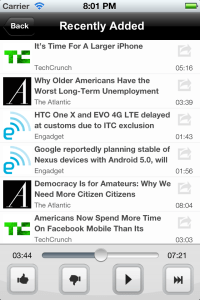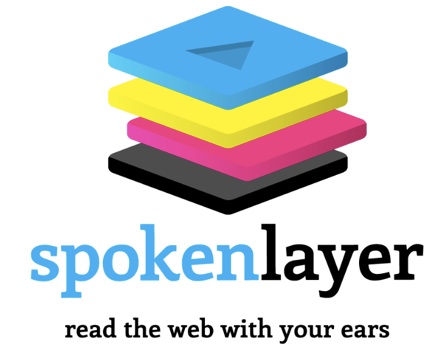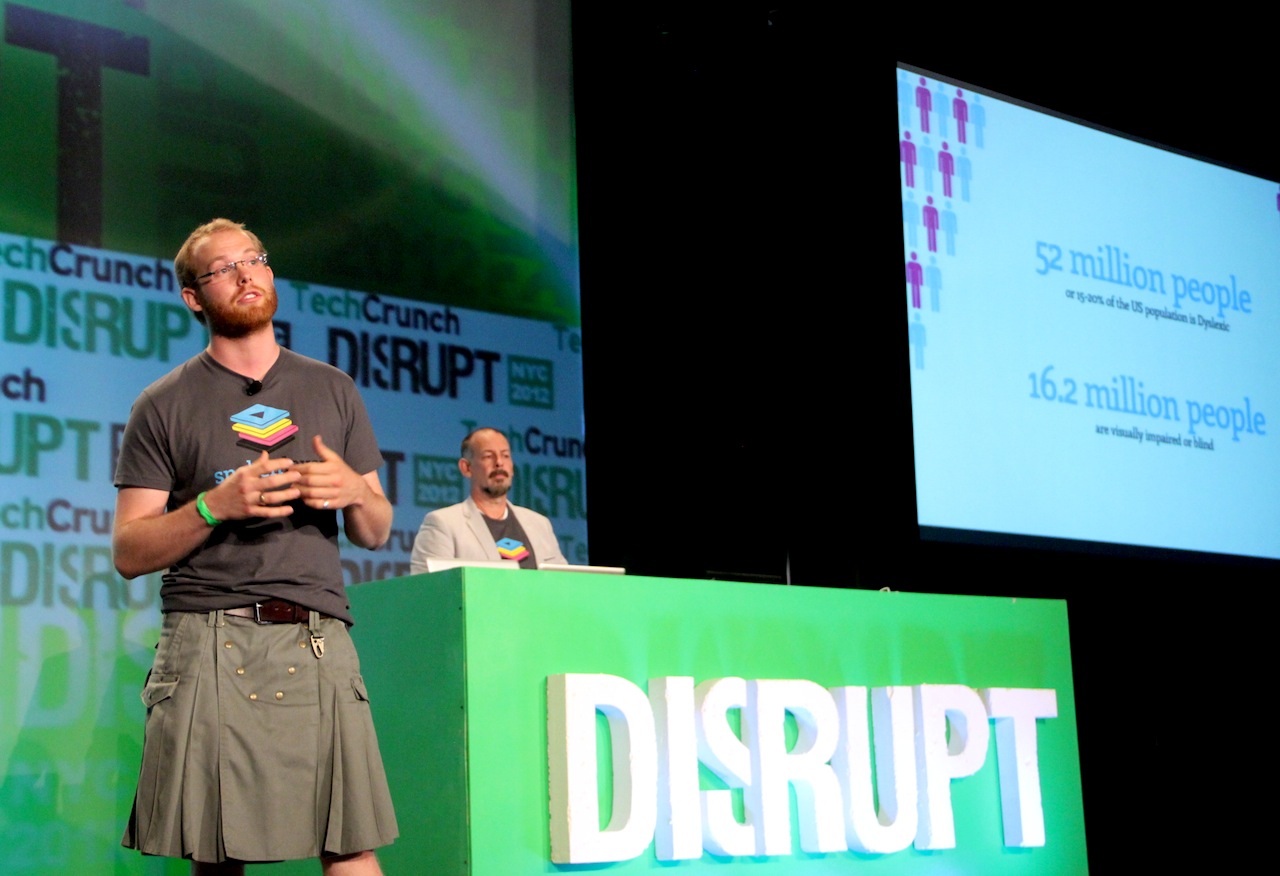What if you couldn’t just read an article on your favorite blog or news site, but also listen to it being read out aloud by the author or professional voice talent? That’s what SpokenLayer, which is launching its public beta today at TechCrunch Disrupt, is working on. The New York-based startup is partnering with a number of well-known publishers, including The Atlantic, National Journal, Engadget and TechCrunch. SpokenLayer is currently only available as an iOS application, but the company plans to add other platforms soon.
 What makes SpokenLayer different from your run-of-the-mill text-to-speech engine is that the company is working with professional voice talent and also lets authors record their own articles. Writers can use the company’s iOS app to just record their articles or, if they have better audio equipment at home, through SpokenLayer’s website.
What makes SpokenLayer different from your run-of-the-mill text-to-speech engine is that the company is working with professional voice talent and also lets authors record their own articles. Writers can use the company’s iOS app to just record their articles or, if they have better audio equipment at home, through SpokenLayer’s website.
As the company’s founder and CEO Will Mayo told me last week, SpokenLayer plans to sign up more premium publishers in the near future, but is also working on its self-service platform at the same time. Working with voice talent, after all, doesn’t scale well in the long run (despite the fact that New York has a deep pool of local talent the company can draw from). The company also encourages authors to record their own text. This, says Mayo, allows readers to form a more intimate connection with the writers, who can also use this tool to emphasize some of the nuances in their texts.
As there is obviously a bit of lag between the time a story is published and the time SpokenLayer can record it, the company first makes a basic text-to-speech version of the article available to listeners and the replaces it as soon as the recording is available. Mayo told me that he is quite aware of the speed at which stories move on the web these days and promises to get the high-quality recordings out before a story ever has a chance to go viral.
As Mayo told me, the idea behind SpokenLayer was born out of his own needs. Dealing with dyslexia himself, he grew up listening to books and textbooks as audio. Then, after finishing graduate school, he started working on SpokenLayer, which he hopes will make “something [he] found so useful available for the largest body of content ever published, the web.”
So far SpokenLayer has been bootstrapped and currently has four employees.
Disrupt Q&A:
Q: How many languages do you support?
A: Currently it’s only available in English.
Q: Why do you think podcasts never fulfilled their promise?
A: Distribution was a problem and it never quite hit the mainstream
Q: How difficult is this to add to publisher’s site?
A: Listen buttons will be available for publishers, but the easiest way is for publishers to give SpokenLayer their RSS feed and be featured in the app.
Q: Do you need publisher’s permission to record their texts?
A: It’s a gray area, but that’s why SpokenLayer is working with a small set of publishers.
Q: How did the founders meet each other?
A: We ran into each other by coincidence and met at various hackathons and other events.


